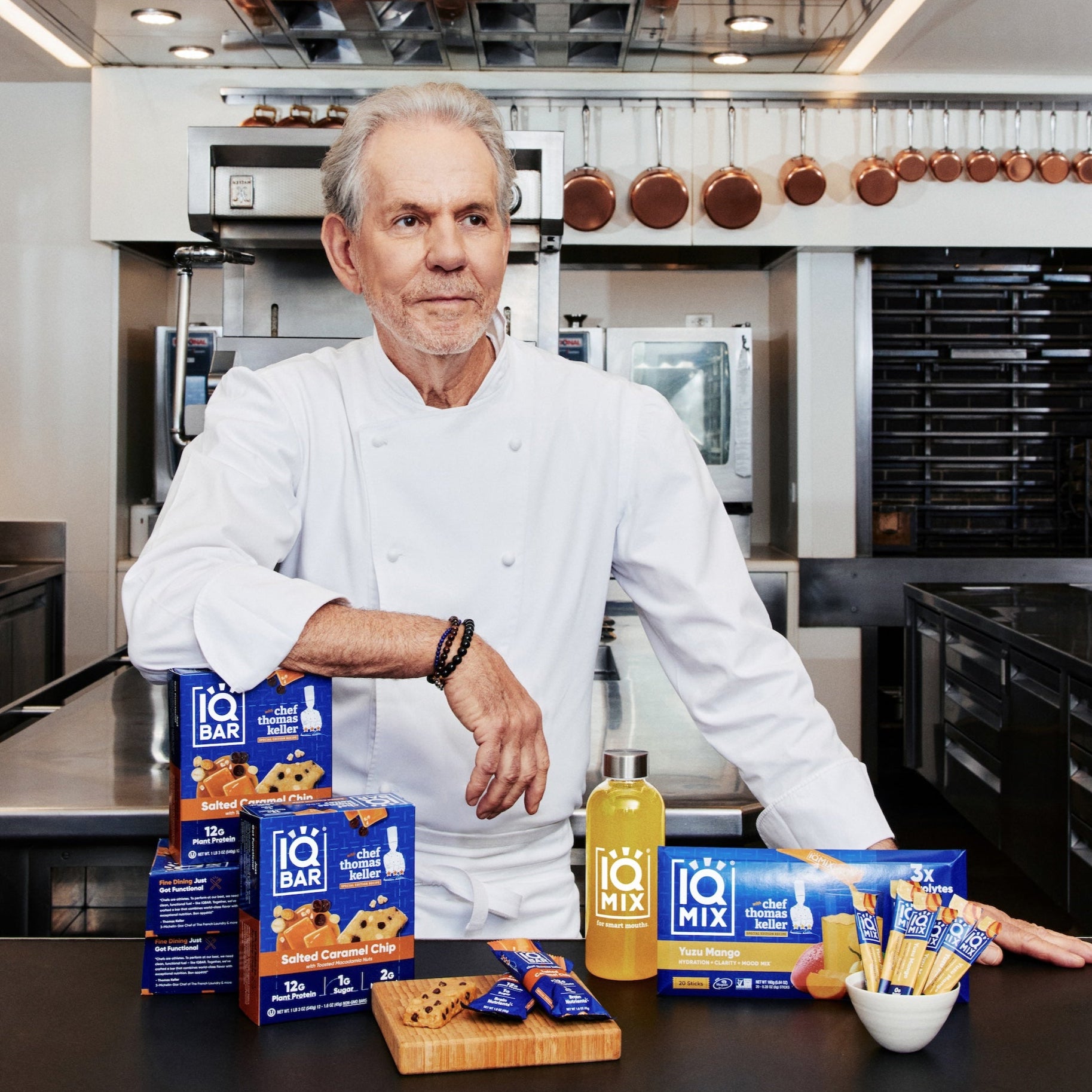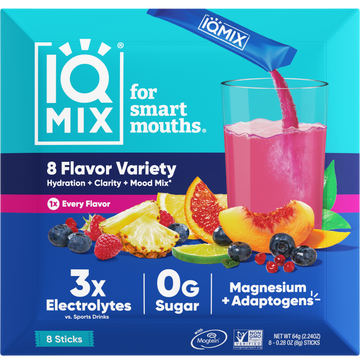Prediabetes, a silent precursor of type 2 diabetes, affects millions of people worldwide.
The good news is that with strategic dietary changes and lifestyle shake-ups, you can halt the advancement of prediabetes and even send it packing! Read on to learn about the power of food in diabetes prevention and the best foods to include on a prediabetes diet.
What Is Prediabetes?
Prediabetes is a health condition that signals a significant warning: your blood sugar levels are higher than normal but not elevated enough to be classified as type 2 diabetes. This condition acts as a critical crossroad, offering an opportunity to take proactive steps towards healthier habits. But, if ignored, prediabetes can potentially progress into full-blown diabetes.
According to the Centers for Disease Control and Prevention (CDC), more than 88 million American adults—approximately 1 in 3—have prediabetes. The alarming part is that more than 84% of those people are unaware they have it.
The risk factors for prediabetes are similar to those for type 2 diabetes and include:
- Being overweight or obese
- Being 45 years or older
- Having a family history of type 2 diabetes
- Being physically inactive
- Having a history of gestational diabetes
- Giving birth to a baby weighing more than 9 pounds
What Causes Prediabetes?
At its core, prediabetes is a result of the body’s inability to use insulin effectively, a condition known as insulin resistance. When insulin resistance occurs, sugar builds up in the bloodstream instead of being absorbed by the cells, leading to higher-than-normal blood sugar levels. Over time, this insulin resistance and high blood sugar can lead to the development of type 2 diabetes.
Early detection and intervention are crucial when dealing with prediabetes. The kicker is the condition doesn’t typically create noticeable symptoms. That’s why getting regular blood sugar screenings is so important.
The Best Foods to Prevent Diabetes
The food we eat serves not only as fuel for our bodies, but also as a key regulator of our blood sugar levels. Diet plays an instrumental role in reversing prediabetes—and preventing its occurrence in the first place.
A prediabetes diet isn’t about deprivation, but rather making mindful choices. It’s about filling your plate with a balance of nutrients that can help control blood sugar levels, maintain a healthy weight, and improve overall health. Here are the key components to focus on:
#1: Healthy Proteins
Proteins play a critical role in managing blood sugar levels because they have a minimal impact on blood glucose and can help control hunger by providing a feeling of fullness. They also support weight loss.
Healthy protein options include:
- Lean meats, such as skinless chicken and turkey
- Fish
- Eggs
- Legumes
- Tofu
- Greek yogurt
#2: Healthy Fats
Fats, specifically healthy fats, play an important role in maintaining blood sugar stability. The main types of healthy fats include monounsaturated fats and polyunsaturated fats, which are found in foods such as:
- Avocados
- Olives
- Nuts
- Seeds
- Fatty fish
- Healthy oils, such as olive oil, avocado oil, and MCT oil
Unlike carbohydrates, fats have minimal direct impact on blood sugar levels. Additionally, consuming healthy fats with carbohydrates can help slow down the absorption of sugar into the bloodstream, preventing rapid spikes in blood sugar levels. This results in a more steady rise and fall of blood glucose, which is better for overall blood sugar control.
#3: Non-Starchy Vegetables
Non-starchy vegetables are low in calories and carbohydrates, making them a good choice for those looking to manage blood sugar levels. They are also high in fiber and contain a variety of vitamins and minerals that can aid in overall health.
These vegetables can be eaten in larger portions than starchy vegetables like potatoes, corn, and peas, which have more carbohydrates and can raise blood sugar levels if not portioned appropriately.
Good options include:
- Leafy greens
- Bell peppers
- Broccoli
- Zucchini
- Tomatoes
- Cucumbers
- Cauliflower
#4: Low-Sugar Fruits
Low-sugar fruits can be a healthy part of a prediabetes diet, providing essential vitamins, minerals, and fiber. Having these fruits for dessert can satisfy your sweet tooth without causing a significant spike in your blood sugar levels. Good options include:
- Berries
- Kiwi
- Cherries
- Citrus fruits
- Melons
Remember to eat whole fruits rather than juices for maximum fiber benefit and minimal blood sugar impact. Fiber slows digestion and the absorption of nutrients, including sugars, leading to a slower and more steady release of glucose into the bloodstream. This gradual release helps prevent sudden spikes in blood sugar levels and keeps them more stable over time.
#5: Healthy Carbohydrates
If you’re not following a low-carb diet, certain carbohydrates can also be a part of a healthy prediabetes diet. The key is sticking to carbs with a low glycemic index (GI). The glycemic index is a rating system that ranks carbs on a scale of 1 to 100 based on how much they raise blood sugar. Foods with a low GI (55 or less) have less of an effect on your blood sugar.
Some healthy, low-GI carbs to enjoy include:
- Steel cut oats
- Legumes (beans and lentils)
- Sweet potatoes
- Quinoa
- Brown rice
Foods to Drastically Reduce or Eliminate on a Prediabetes Diet
While incorporating nutrient-dense foods into your diet is a significant part of managing prediabetes, it’s equally important to understand which foods can exacerbate blood sugar imbalances. Here are some foods you should aim to limit or avoid:
- Refined carbs: Foods like white bread, white rice, and pastries are made from refined grains, which lack the fiber of their whole-grain counterparts. These foods can lead to rapid spikes in blood sugar and should be limited.
- Processed foods: Highly processed foods such as chips, sugary cereals, cake, candy, cookies, instant noodles, and pre-packaged meals often contain high amounts of added sugars, unhealthy fats, and sodium, with little nutritional value.
- Trans fats and saturated fats: Foods high in these fats, such as fried foods, fatty cuts of meat, full-fat dairy, and certain baked goods, can contribute to insulin resistance and should be limited.
- Alcohol: While moderate alcohol consumption can be part of a healthy diet, excessive intake can cause blood sugar spikes and crashes, leading to poor blood sugar control.
- Sugary drinks: Drinks like soda, sports drinks, sweetened iced tea, fruit punch, and energy drinks are often high in added sugars, which can rapidly increase blood sugar levels. Even fruit juices, which may seem healthy, can lead to blood sugar spikes due to the lack of fiber and high concentration of fructose. If you’re looking for a diabetes-friendly sports drink, don’t miss IQMIX—a sugar-free hydration mix that contains only 3 grams of carbs per packet.
A Final Word on the Prediabetes Diet
Managing prediabetes effectively comes down to understanding the impact of dietary choices on blood sugar levels. But making these changes doesn’t mean giving up on convenience or taste. You can still enjoy delicious, satisfying snacks while keeping your health on track.
For those on-the-go moments or when you need a quick snack between meals, reach for an IQBAR. IQBARs are low-carb, high-protein, high-fiber bars designed to keep you fueled without spiking your blood sugar. Packed with healthy fats and 12 grams of plant-based protein, they’re a smart and tasty choice for anyone managing prediabetes or diabetes.
And don’t forget about other healthy lifestyle changes such as incorporating regular physical activity and maintaining a healthy weight. These also play a vital role in staving off diabetes.
Take control of your health today—one bite at a time!
Written by Katie Koschalk, a health and wellness writer, certified holistic nutritionist, and certified personal trainer based in California.



